
What is Digital Marketing?
Definition and Explanation
Digital marketing refers to any marketing efforts that use electronic devices or the internet. Businesses take advantage of digital channels such as search engines, social media, email, and websites to connect with their current and future customers. It’s an evolving field that allows for targeted, measurable and interactive marketing strategies.
From Traditional Marketing
For decades, traditional marketing methods such as print ads, billboards, or TV commercials have been the norm. But with the introduction of the internet and digital sale’s initiative, marketing also changed. One major strategy for companies using digital marketing enables them to obtain a higher return on investment, because they can not only reach a global audience more cost-effectively than before but also track their campaigns in real time.Why Digital Marketing Matters Today
Growing Online Presence
In today’s digital age, consumers spend a significant amount of time online. Having a robust online presence is crucial for businesses to reach their target audience effectively. Digital marketing allows you to engage with customers where they spend their time—on social media, search engines, and websites.Cost-Effectiveness and ROI
In today’s digital age, a large percentage of consumer time is spent on the internet. Therefore, it is vital for businesses to be on the web in order to reach their target audience effectively. Digital marketing allows you to interact with customers where they spend their time–on social media and search engines.
Table: Cost-Effectiveness and ROI Comparison
|
Marketi ng Channel |
Average Cost |
ROI Potential |
|---|---|---|
|
TV Commercials |
High |
Medium |
|
Print Ads |
Medium |
Low to Medium |
|
Social Media Ads |
Low |
High |
|
Email Marketing |
Very Low |
Very High |
|
SEO & Content Marketing |
Low to Medium |
High (Long-Term) |
Key Components of Digital Marketing
SEO(Search Engine Optimization)
The optimization of your website for placing higher on search engines means more people can see it and organically you may be more very visible.
On-Page SEO
This can involve optimizing individual web pages through the use of relevant keywords, quality content generation methods and meta tags to guarantee correct indexing by search engines.
Off-Page SEO
Off-page SEO focuses on getting backlinks from authority websites. These links enhance the credibility and will increase your site’s own power.
Content Marketing
Content marketing is about producing and sharing useful content some people like, which attracts perhaps encourages them in their loyalty to your cause. This can include video blogs, articles, reports.
Social Media Marketing
Promote your brand, engage with people on platforms such as Facebook, Instagram and Twitter as well as drive traffic back to your web site.
Email Marketing
This means sending either direct sales messages or newsletters styled products filled with useful information direct to small groups or they way one did in 2000-2007 to everyone at once.
Pay-Per-Click Advertising (PPC)
With PPC you can place ads on search engines so people only pay when users click on your ad–fast enough to send visitors immediately to another site is the goal here.
Affiliate Marketing
Affiliate marketing means teaming up with other people or companies who promote your products in exchange for a commission cut of any sales generated through their efforts.
Understanding Your Target Audience
Creating Buyer Personas
Developing detailed buyer personas helps you to identify what your ideal customers need and want as well as how they behave which provides opportunities for more accurate targeting.
Audience Research Tools
To help make things easier, there are lots of tools such as Google Analytics, social media insights and questionnaires available for finding out who your audience is demographics wise, what their hobbies are and how far they live from work.
Setting Goals and KPIs
SMART Goals in Marketing
By adhering to concepts such as Specific, Measurable, Achievable, Relevant and Time-bound marketing strategies are focused and precise.
Key Performance Indicators (KPIs)
KPIs help you measure the success of your campaigns. Common KPIs include website traffic, conversion rates, and customer engagement metrics.
Table: Setting SMART Goals and KPIs
|
Goal Description |
Metric Tracked |
Timeline |
|---|---|---|
|
Grow email subscribers |
Subscriber Count |
30 days |
|
Increase blog traffic |
Page Views |
60 days |
|
Boost Instagram engagement |
Likes/Comments/Shares |
Ongoing |
Building a Digital Marketing Strategy
Channel Selection
Choose which digital marketing channels fit with your business goals and where your target audience is most active.
Shifting your paid and organic search budgets
Establishing how to divvy up your budget among different types of media that can give you good returns, and you want more from.
Purpose Calendar Planning
Plan a content calendar and organize your marketing activities, to ensure they are constant with your strategy. Avoiding being the person in charge of work or school calendar planning(this whether it can be avoided).
The Essential Tools for Beginners to Grasp
Google Analytics
A powerful tool for tracking website traffic, user behavior, and conversion metrics. Google Analytics can help you make data-driven decisions.
SEMrush / Ahrefs
These tools help with keyword research, competitor analysis, and SEO audits to improve your site’s search engine performance.
Canva / Design Tools
User-friendly design tool such as Canva can help you make good-looking graphics for your marketing campaigns without design experience
Common Mistakes Beginners Should Avoid
neglect SEO optimization setting clear marketing goals is a necessary starting point. Pay attention to publish on mobile in general terms Valuing content marketing. It’s important for you not just to do this, but also to see how your results are measured (see following link). Use your energy multiple efforts, Do not mistake forgering and also fleeing too quickly after victories. You also want to be updating this content regularly if possible.
How to Measure Success
Metrics That Matter
Key metrics to monitor include website traffic, bounce rate, conversion rate, and customer acquisition cost.
Optimized A/B Testing
Conduct A/B testing to compare different versions of your marketing materials and improve based on performance data.
Learn More With Free Resources
- Online Courses and Certifications
- Google Digital Garage
- HubSpot Academy
- Coursera’s Digital Marketing Specialization
Blogs, Podcasts & YouTube Channels
- Neil Patel’s Blog
- Moz Blog
- Marketing School Podcast
- Brian Dean’s YouTube Channel
Real-Life Examples of Digital Marketing Wins
Digital marketing has proven to be a perfect fit for firms such as Airbnb and Dollar Shave Club. They demonstrate in their success stories exactly how creative content, social media interaction and directed advertising can work wonders. The results are at least intriguing.
The Future of Digital Marketing
Upcoming trends include more use of artificial intelligence, a personalized marketing experience, and the greater significance of video content. It is really necessary to keep one’s finger on the pulse of these trends if one wants continued success.
Final Thoughts
When you set out on your digital marketing journey, it can seem overwhelming. But by mastering the essentials and constantly learning more, you can establish strategies that work online. Remember, consistency and flexibility are everything in the constantly changing digital landscape.
FAQ
What is the best digital marketing platform for beginners?
There are platforms like Facebook and Instagram that are very easy for beginners, offering powerful advertising tools.
How long does it take to learn digital marketing?
This varies depending on how quickly students learn and their effort. With consistent training it should only take a few months to get the basics clear in one’s mind.
Is coding required in digital marketing?
No. While coding is not required in Digital Marketing it would be helpful if one has a basic knowledge of HTML and CSS.
Can I start digital marketing with no money?
Yes, many digital marketing strategies such as content creation and social media interaction require minimal to no financial investment.
What's the difference between SEO and SEM?
SEO is used to optimise organic search results, while SEM encompasses paid advertising for visibility on search engines.
Search
Recent Post
PPC Mastery: Proven Google Ads Tactics for
- June 16, 2025
- 11 min read
Automate to Dominate: Top Marketing Tools for
- June 14, 2025
- 11 min read
The Future of Advertising: Unveiled Marketing Insights
- June 10, 2025
- 9 min read
What’s Next for Marketing: Top Digital Trends
- June 5, 2025
- 10 min read
Marketing Predictions 2025: Trends to Dominate the
- June 4, 2025
- 10 min read


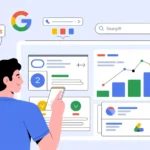
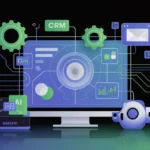
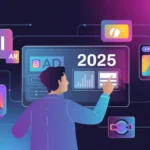

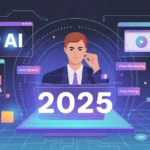
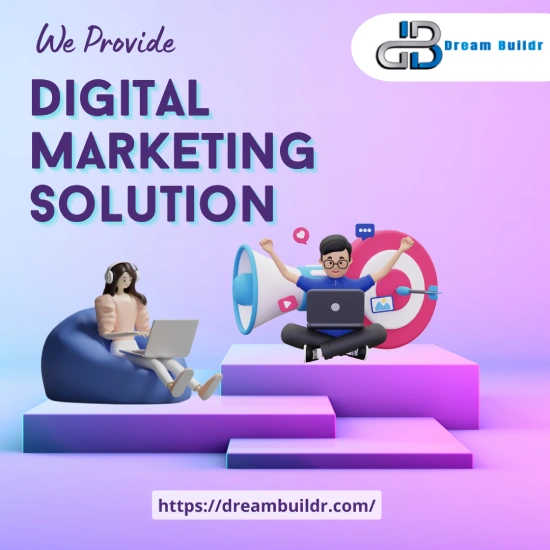
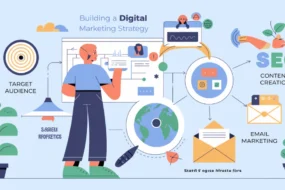
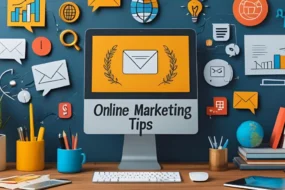
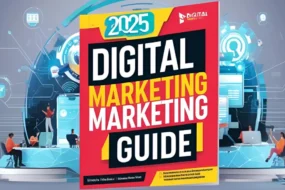
No Comments